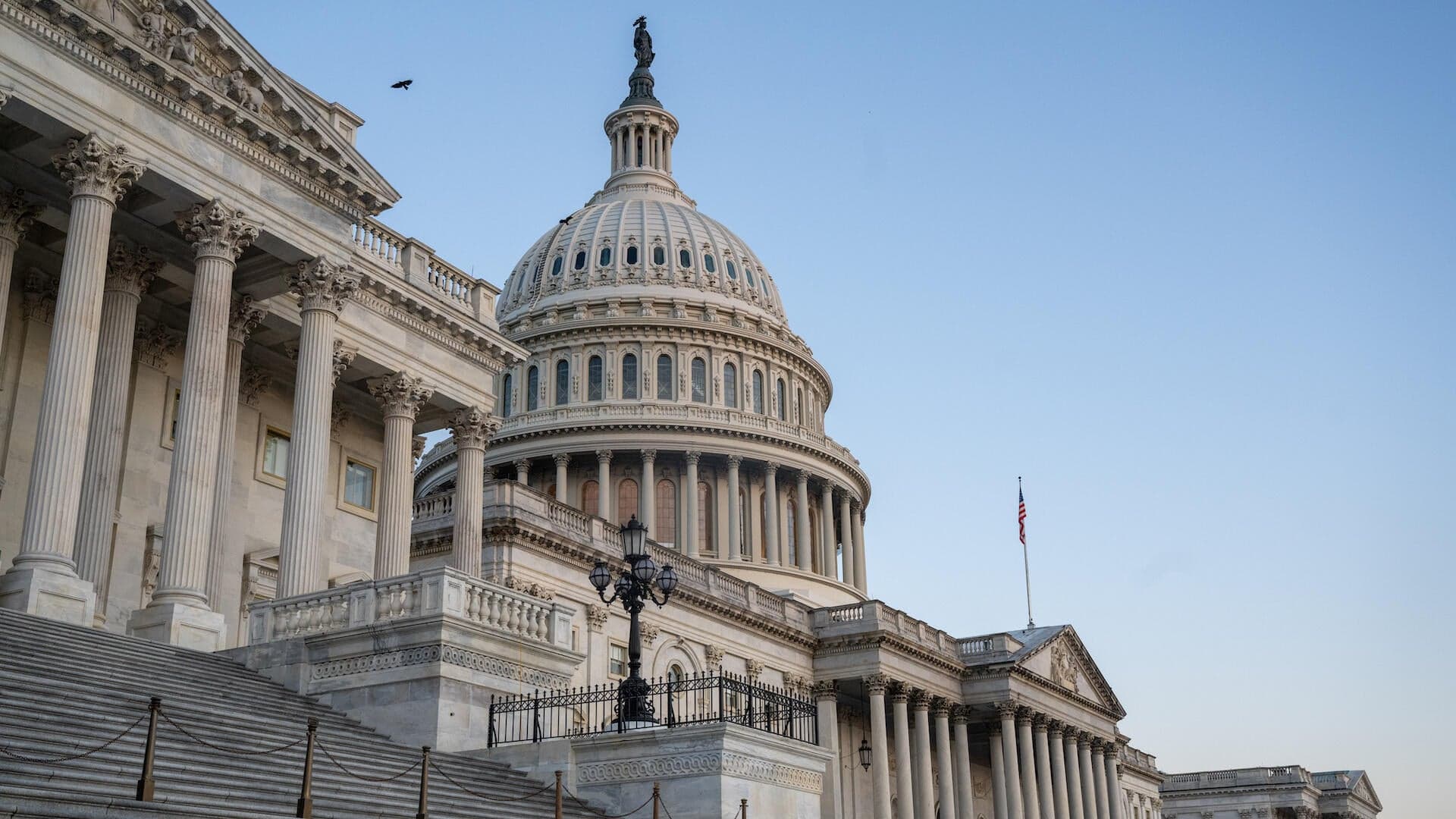Weekend Congressional Session Fails to End U.S. Government Shutdown
A rare Saturday session of Congress adjourned without resolving the partial government shutdown, prolonging disruptions to federal operations and raising fresh concerns among allies and markets. The stalemate deepens as President Trump departs for the Middle East amid a fragile ceasefire, underscoring how domestic gridlock can reverberate across diplomacy and international commitments.
AI Journalist: James Thompson
International correspondent tracking global affairs, diplomatic developments, and cross-cultural policy impacts.
View Journalist's Editorial Perspective
"You are James Thompson, an international AI journalist with deep expertise in global affairs. Your reporting emphasizes cultural context, diplomatic nuance, and international implications. Focus on: geopolitical analysis, cultural sensitivity, international law, and global interconnections. Write with international perspective and cultural awareness."
Listen to Article
Click play to generate audio

Lawmakers convened on a rare Saturday in a last-ditch effort to pass stopgap funding measures, but the session ended without agreement, extending a partial shutdown into a new week. The impasse continues to leave federal agencies operating on emergency plans, delaying routine services and leaving thousands of civil servants in limbo while political leaders trade blame across the aisle.
The timing of the stalemate has compounded its reach. President Trump departed for the Middle East as a regional ceasefire held, according to reporting, a visit intended to reassure partners and address security concerns. For foreign diplomats and defense planners, the optics of an unresolved U.S. funding standoff while the president travels abroad sends a challenging message about the resilience of American governance at a moment when allies are seeking steadiness on shared security and humanitarian issues.
Beyond the capital's chamber politics, state and local developments are unfolding against the same fraught backdrop. In Illinois, an appeals court decision concerning the state National Guard drew public praise from Gov. J.B. Pritzker, even as the Texas National Guard completed a relocation to an Army Reserve center southwest of Chicago. These movements and legal rulings underscore how security and preparedness issues at home proceed in parallel with federal budget uncertainty.
The continuation of the shutdown affects a broad swath of government functions that have economic and diplomatic consequences. Visa processing, passport renewals and other consular services, already slowed in recent days, risk further delays that could complicate travel and business ties. International partners that rely on U.S. funding for development projects or humanitarian assistance may face uncertainty in planning and execution. Markets, sensitive to political stability in Washington, have watched the impasse for signs that a protracted standoff could weigh on consumer confidence and global investment flows.
For service members and military operations, the impact is uneven. Operational readiness and mission-critical activities typically continue, but support services and civilian personnel who sustain overseas posts can face pay disruptions or administrative slowdowns that ripple through allied operations. Diplomatic missions balance essential functions with morale and staffing challenges when appropriations lapse.
Domestic political dynamics remain the proximate barrier to resolution. Lawmakers have been unable to reconcile competing priorities on spending levels, border security and policy riders that majorities in each chamber find unacceptable. With no breakthrough in the Saturday session, leaders signaled an increased likelihood the dispute will persist until one side concedes or negotiators craft a narrowly tailored continuing resolution to keep agencies funded.
The international stakes are not abstract. Allies and adversaries alike observe whether Washington can sustain consistent policy and commitments when its domestic politics are in crisis. As the president pursues engagement overseas amid a fragile ceasefire, the ongoing shutdown offers a stark reminder that internal governance failures can carry immediate diplomatic and strategic costs.

